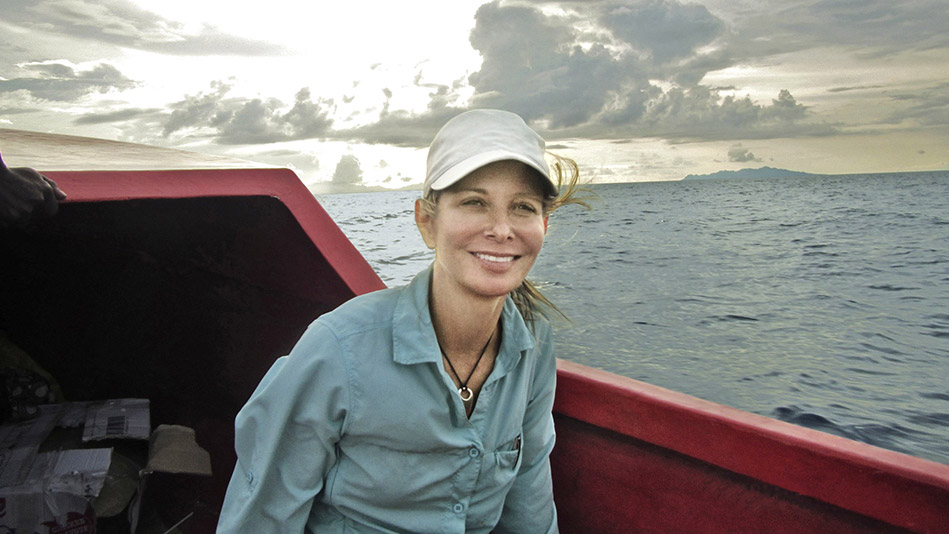Susan Casey on Why Humans Feel So Connected to Dolphins

Photo: Courtesy of Susan Casey
First it was sharks, then rogue waves. Now, in her third book, Voices in the Ocean, Susan Casey turns to a gentler presence in the seas: dolphins. O editor in chief Lucy Kaylin caught up with Casey to ask about our connection to these mesmerizing mammals.
LK: Since long before Flipper, humans have been fascinated by dolphins.
SC: Nobody is unemotional around a dolphin. After writing the book, I've come to the conclusion that they really are a sort of mirror of us. Their brains have evolved differently from ours, they don't have hands, they don't build cities, they don't write—but they have societies, they have families, they communicate, they play. When you look in the eye of a dolphin, there's a recognition.
LK: You paint a dramatic picture of the assault on dolphins—by hunters, by our gross mistreatment of the environment. What the hell is wrong with us?
SC: We act like we own the joint, like it's ours to run, but the joke's on us. It can't be us or them because we are connected inexorably with the rest of nature. It's this big, wonderful tapestry, and if we keep pulling apart the threads, we're the losers.
LK: What is it that draws you so forcefully to the ocean and its inhabitants?
SC: As long as I can remember, I've been fascinated by what was going on down there. I love that there is this parallel universe filled with life-and-death action, breathtaking beauty, and all manner of mysteries—and I've always wondered why more of our time isn't spent exploring it.
LK: You worked in the upper ranks of publishing in New York for years—including as editor in chief of O. How hard was it to be away from the ocean, in a world of concrete and honking horns?
SC: I always felt like part of me was waiting to get back—and the longer I was away, the more I missed it. When O talks about living your best life, well, my best life is aquatic.



